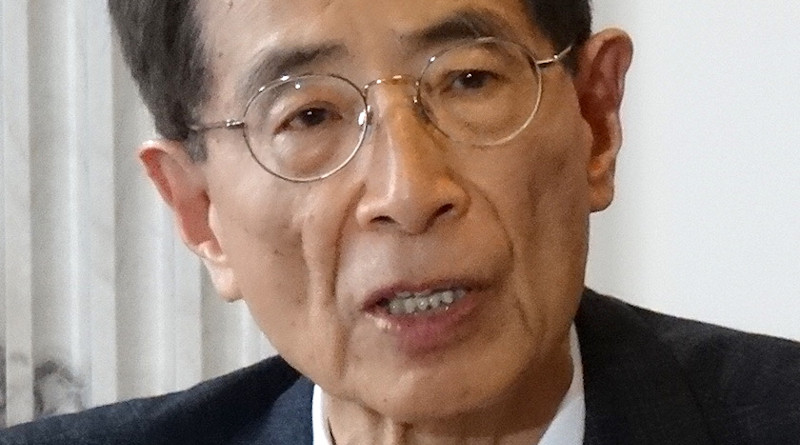Martin Lee: The Democratic Face Of Hong Kong – OpEd
Martin Lee had almost faded from the public memory of Hong Kong after the reversion of the territory to Beijing in July 1997. The resounding success of the Democratic Party in the election to the Legislative Council or Legco (the legislature of Hong Kong) prior to Hong Kong’s reversion to China in September 1995 had catapulted him to the centre stage of politics in Hong Kong. All these years, however, he remained in political hibernation only to be shot into lime light when he was arrested by the Hong Kong authorities along with fourteen other pro-democracy activists in mid-April this year.
In a society where politics had been a taboo, Lee was quite successful not only in enthusing the apolitical denizens of Hong Kong, but also in bringing together motley democratic elements in the erstwhile British territory against the formidable opposition in Beijing, and the conservative forces in Hong Kong. Martin Lee was the chief architect of the democratic victory in Hong Kong in September 1995 and has been a vanguard of pro-democracy movement in the territory. Lee, born in 1938, as a child aspired to become a diplomat. His father was originally a domicile of Guangdong. During Hong Kong’s transition to China, he could have obtained the British nationality status very easily, but his father insisted otherwise. Incidentally Lee’s father was a good friend of Zhou Enlai who later became Chinese premier under Mao Zedong. In spite of their ideological difference they continued to be friends and later parted company.
Lee’s father could have also fled to Taiwan when Kuo-min-tang led Chiang-Kai Shek established the Republic of China in1949, but the rampant corruption endemic in the regime there was too much for him to withstand. He therefore decided to settle down in Hong Kong. Martin Lee graduated from Hong Kong University in 1960 and in 1965 went to London to study law. He came back to Hong Kong to start his career in legal profession and established himself as one of the most successful lawyers in Hong Kong. In his spare time he had been active in the social and political life of Hong Kong. Events in Hong Kong during its reversion to China pitchforked him to the role of an astute politician negotiating with both Beijing and London for a best deal for Hong Kong.
When negotiation between China and Britain started in 1982, after British Prime Minister Mrs. Margaret Thatcher’s visit to Beijing, Chinese leaders tried to garner Lee’s support in their efforts to forge a united front strategy to win over Hong Kong’s intelligentsia. Since Lee commanded a great deal of respect among Hong Kong citizenry, particularly teachers, students, lawyers and liberal trade union workers, Beijing thought it prudent to rope in him. Xinhua, Beijing’s unofficial embassy in Hong Kong during those days was given instruction accordingly. No wonder, therefore, when the historic Joint Declaration with regard to the transfer of sovereignty was signed between London and Beijing in the Chinese capital in December 1984, Lee had the honour of witnessing the event along with few other invitees from Hong Kong. Later in July1985, the Beijing leadership in their united front exercise appointed Lee to the Basic Law Drafting Committee (BLDC).
Lee was elected to the Legco in September 1985 representing the lawyer’s constituency in the system of functional representation when indirect elections were held for the first time to the Legco. His election to the legislature gave him leverage to plead with Beijing firmly during the parleys in the meetings of the Drafting Committee. The Drafting Committee, however, was dominated by members from the mainland and pro-Beijing elements from Hong Kong with the only exception very few likeminded liberal democrats representing the academia from Hong Kong. In the Drafting Committee Lee and his peers together strongly argued for Hong Kong’s cause and fought for greater autonomy, the rights and freedom of its inhabitants and for an independent judiciary. Things however did not move in the desired direction and in November 1989, the National People’s Congress of China declared that Lee and his colleague Szeto had engaged in activities inconsistent with the status of the drafting Committee member and suspended them.
Lee, however, continued his fight for democracy and formed Hong Kong’s first political party The United Democrats in 1990. The result of the 1995 election was yet another feather in his cap. Due to advanced age in recent times he has not been very active, though not resigned to fate. The protection and preservation of values such as freedom of expression, legal and judicial rights and human rights are very dear to his heart.
*Rup Narayan Das is a Delhi based China scholar and is currently a senior fellow of Indian Council of Social Science Research. His research papers on Hong Kong had been published in The Other Hong Kong Report, 1990 by the Chinese University of Hong Kong, The China Report and International Studies. Views are personal.

